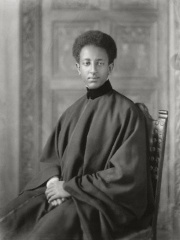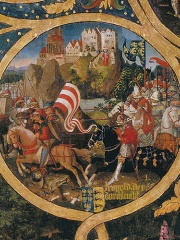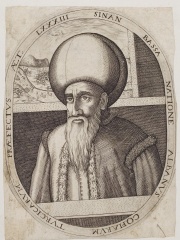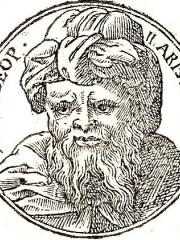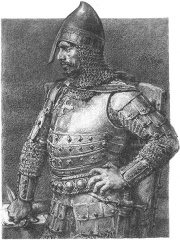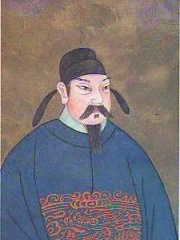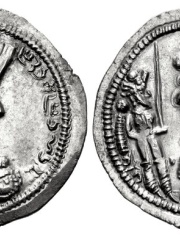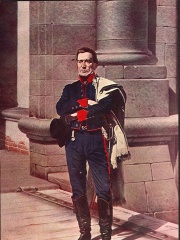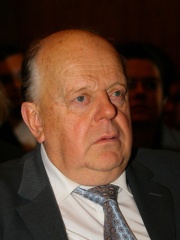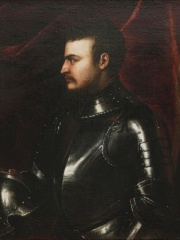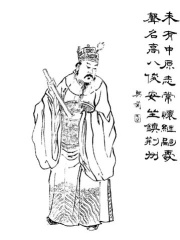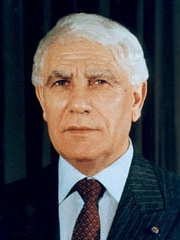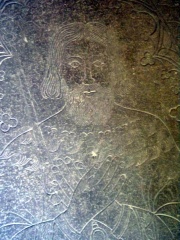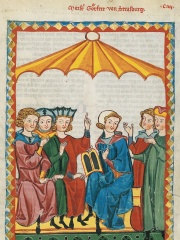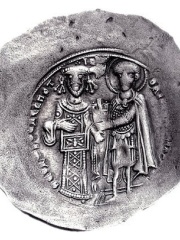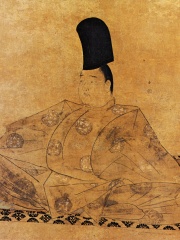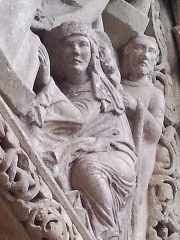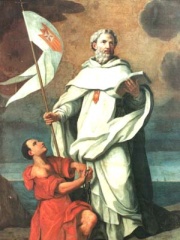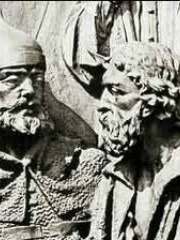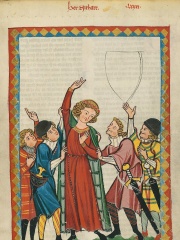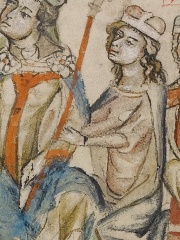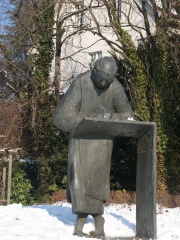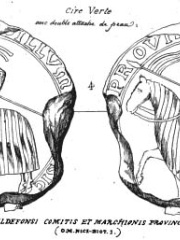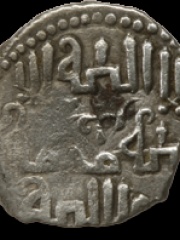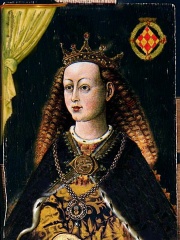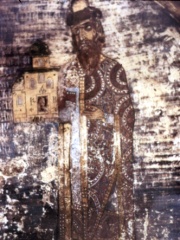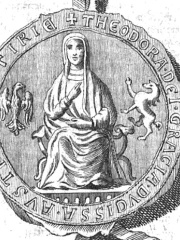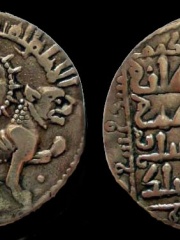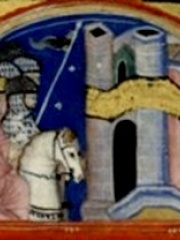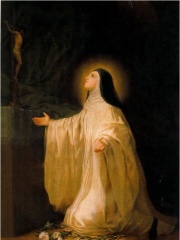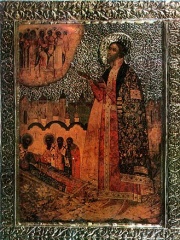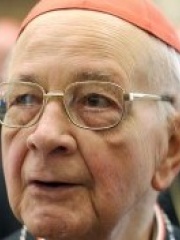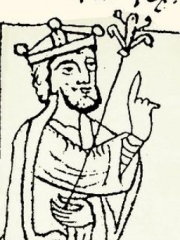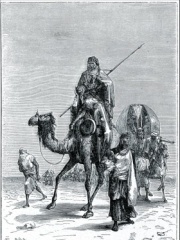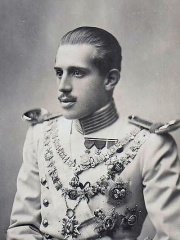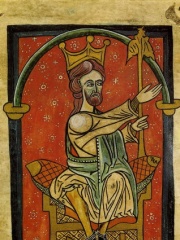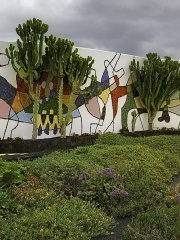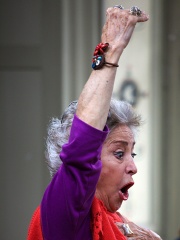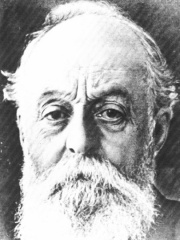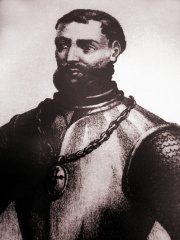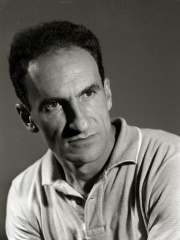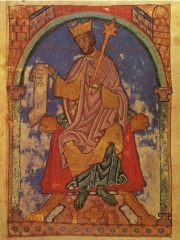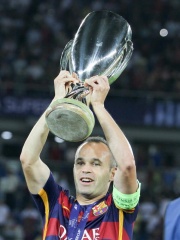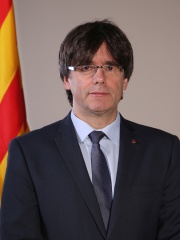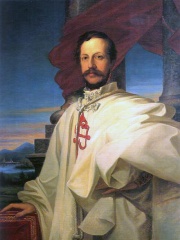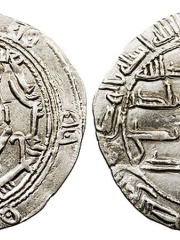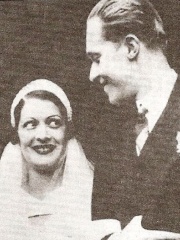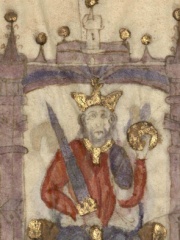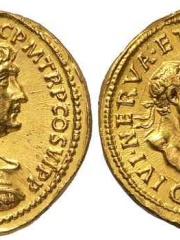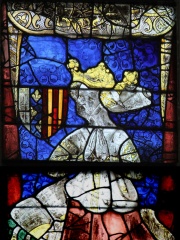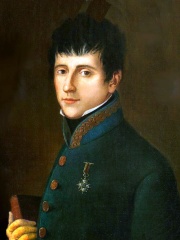POLITICIAN
Berengaria of Castile
1180 - 1246
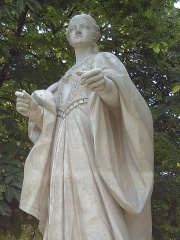
 Berengaria of Castile
Berengaria of Castile
Berengaria (Castilian: Berenguela), nicknamed the Great (Castilian: la Grande) (1179 or 1180 – 8 November 1246), was the queen of Castile who ascended the throne in 1217, and previously queen of León from 1197 to 1204 as the second wife of King Alfonso IX. As the eldest child and heir presumptive of Alfonso VIII of Castile, she was a sought-after bride, and was engaged to Conrad, the son of Holy Roman Emperor Frederick I. After Conrad's death, she married her cousin Alfonso IX of León to secure the peace between him and her father. She had five children with him before their marriage was voided by Pope Innocent III. When her father died, Berengaria served as regent for her younger brother Henry I in Castile until she succeeded him on his untimely death. Within months, she had her son Ferdinand III acclaimed king. She continued guiding policy, negotiating, and ruling for the rest of her life. Read more on Wikipedia
Her biography is available in 31 different languages on Wikipedia. Berengaria of Castile is the 3,963rd most popular politician (down from 3,773rd in 2024), the 329th most popular biography from Spain (up from 341st in 2019) and the 115th most popular Spanish Politician.
Berengaria of Castile is most famous for being the wife of Richard the Lionheart. She was also the daughter of Alfonso VIII of Castile and Eleanor of England.
Memorability Metrics
Page views of Berengaria of Castile by language
Among POLITICIANS
Among politicians, Berengaria of Castile ranks 3,963 out of 19,576. Before her are Amha Selassie, Leopold I, Margrave of Austria, Koca Sinan Pasha, Aristobulus II, Konrad I of Masovia, and Emperor Daizong of Tang. After her are Bahram IV, José Gervasio Artigas, Stanislav Shushkevich, Giovanni dalle Bande Nere, Liu Biao, and Chadli Bendjedid.
Most Popular Politicians in Wikipedia
Go to all RankingsAmha Selassie
1916 - 1997
HPI: 68.02
Rank: 3,959
Leopold I, Margrave of Austria
940 - 994
HPI: 68.01
Rank: 3,960
Koca Sinan Pasha
1520 - 1596
HPI: 68.01
Rank: 3,961
Aristobulus II
100 BC - 49 BC
HPI: 68.01
Rank: 3,962
Konrad I of Masovia
1187 - 1247
HPI: 68.01
Rank: 3,963
Emperor Daizong of Tang
727 - 779
HPI: 68.01
Rank: 3,964
Berengaria of Castile
1180 - 1246
HPI: 68.01
Rank: 3,965
Bahram IV
383 - 399
HPI: 68.01
Rank: 3,966
José Gervasio Artigas
1764 - 1850
HPI: 68.01
Rank: 3,967
Stanislav Shushkevich
1934 - 2022
HPI: 68.00
Rank: 3,968
Giovanni dalle Bande Nere
1498 - 1526
HPI: 68.00
Rank: 3,969
Liu Biao
142 - 208
HPI: 68.00
Rank: 3,970
Chadli Bendjedid
1929 - 2012
HPI: 68.00
Rank: 3,971
Contemporaries
Among people born in 1180, Berengaria of Castile ranks 2. Before her is Eric X of Sweden. After her are Gottfried von Strassburg, Theodore Komnenos Doukas, Emperor Go-Toba, Constance of Hungary, Peter Nolasco, Mstislav Mstislavich, Neidhart von Reuental, Otto I, Duke of Merania, Caesarius of Heisterbach, and Alfonso II, Count of Provence. Among people deceased in 1246, Berengaria of Castile ranks 4. Before her are Töregene Khatun, Isabella of Angoulême, and Frederick II, Duke of Austria. After her are Yaroslav II of Vladimir, Theodora Angelina, Kaykhusraw II, Alice of Champagne, Kaliman I of Bulgaria, Lutgardis, Michael of Chernigov, and Geoffrey II of Villehardouin.
Others Born in 1180
Go to all RankingsEric X of Sweden
POLITICIAN
1180 - 1216
HPI: 68.75
Rank: 1
Berengaria of Castile
POLITICIAN
1180 - 1246
HPI: 68.01
Rank: 2
Gottfried von Strassburg
WRITER
1180 - 1215
HPI: 67.75
Rank: 3
Theodore Komnenos Doukas
POLITICIAN
1180 - 1253
HPI: 67.17
Rank: 4
Emperor Go-Toba
POLITICIAN
1180 - 1239
HPI: 65.91
Rank: 5
Constance of Hungary
COMPANION
1180 - 1240
HPI: 64.86
Rank: 6
Peter Nolasco
RELIGIOUS FIGURE
1180 - 1256
HPI: 63.93
Rank: 7
Mstislav Mstislavich
POLITICIAN
1180 - 1228
HPI: 63.28
Rank: 8
Neidhart von Reuental
POLITICIAN
1180 - 1247
HPI: 62.89
Rank: 9
Otto I, Duke of Merania
NOBLEMAN
1180 - 1234
HPI: 62.51
Rank: 10
Caesarius of Heisterbach
WRITER
1180 - 1240
HPI: 61.90
Rank: 11
Alfonso II, Count of Provence
POLITICIAN
1180 - 1209
HPI: 61.63
Rank: 12
Others Deceased in 1246
Go to all RankingsTöregene Khatun
POLITICIAN
1185 - 1246
HPI: 73.74
Rank: 1
Isabella of Angoulême
COMPANION
1188 - 1246
HPI: 70.83
Rank: 2
Frederick II, Duke of Austria
POLITICIAN
1211 - 1246
HPI: 68.27
Rank: 3
Berengaria of Castile
POLITICIAN
1180 - 1246
HPI: 68.01
Rank: 4
Yaroslav II of Vladimir
POLITICIAN
1191 - 1246
HPI: 65.91
Rank: 5
Theodora Angelina
POLITICIAN
1190 - 1246
HPI: 65.62
Rank: 6
Kaykhusraw II
POLITICIAN
HPI: 65.56
Rank: 7
Alice of Champagne
COMPANION
1196 - 1246
HPI: 65.10
Rank: 8
Kaliman I of Bulgaria
POLITICIAN
1234 - 1246
HPI: 64.92
Rank: 9
Lutgardis
RELIGIOUS FIGURE
1182 - 1246
HPI: 64.88
Rank: 10
Michael of Chernigov
POLITICIAN
1185 - 1246
HPI: 64.77
Rank: 11
Geoffrey II of Villehardouin
POLITICIAN
1195 - 1246
HPI: 61.07
Rank: 12
In Spain
Among people born in Spain, Berengaria of Castile ranks 329 out of 3,355. Before her are Eduardo Martínez Somalo (1927), Ramiro I of Aragon (1008), Benjamin of Tudela (1130), Infante Jaime, Duke of Segovia (1908), Ordoño II of León (873), and César Manrique (1919). After her are Teresa Berganza (1933), Eusebi Güell (1846), Francisco Hernández de Córdoba (1500), Eduardo Chillida (1924), Ramiro II of León (898), and Andrés Iniesta (1984).
Others born in Spain
Go to all RankingsEduardo Martínez Somalo
RELIGIOUS FIGURE
1927 - 2021
HPI: 68.18
Rank: 323
Ramiro I of Aragon
POLITICIAN
1008 - 1063
HPI: 68.15
Rank: 324
Benjamin of Tudela
EXPLORER
1130 - 1173
HPI: 68.08
Rank: 325
Infante Jaime, Duke of Segovia
POLITICIAN
1908 - 1975
HPI: 68.06
Rank: 326
Ordoño II of León
POLITICIAN
873 - 924
HPI: 68.03
Rank: 327
César Manrique
SCULPTOR
1919 - 1992
HPI: 68.01
Rank: 328
Berengaria of Castile
POLITICIAN
1180 - 1246
HPI: 68.01
Rank: 329
Teresa Berganza
SINGER
1933 - 2022
HPI: 68.00
Rank: 330
Eusebi Güell
BUSINESSPERSON
1846 - 1918
HPI: 67.97
Rank: 331
Francisco Hernández de Córdoba
EXPLORER
1500 - 1517
HPI: 67.96
Rank: 332
Eduardo Chillida
SCULPTOR
1924 - 2002
HPI: 67.93
Rank: 333
Ramiro II of León
POLITICIAN
898 - 951
HPI: 67.92
Rank: 334
Andrés Iniesta
SOCCER PLAYER
1984 - Present
HPI: 67.92
Rank: 335
Among POLITICIANS In Spain
Among politicians born in Spain, Berengaria of Castile ranks 115. Before her are Carles Puigdemont (1962), Charles II, Duke of Parma (1799), Al-Hakam I (770), Ramiro I of Aragon (1008), Infante Jaime, Duke of Segovia (1908), and Ordoño II of León (873). After her are Ramiro II of León (898), Alfonso, Prince of Asturias (1907), Ferdinand IV of Castile (1285), Marcus Ulpius Traianus the Elder (30), Yolande of Aragon (1384), and Rafael del Riego (1784).
Carles Puigdemont
1962 - Present
HPI: 68.27
Rank: 109
Charles II, Duke of Parma
1799 - 1883
HPI: 68.26
Rank: 110
Al-Hakam I
770 - 822
HPI: 68.24
Rank: 111
Ramiro I of Aragon
1008 - 1063
HPI: 68.15
Rank: 112
Infante Jaime, Duke of Segovia
1908 - 1975
HPI: 68.06
Rank: 113
Ordoño II of León
873 - 924
HPI: 68.03
Rank: 114
Berengaria of Castile
1180 - 1246
HPI: 68.01
Rank: 115
Ramiro II of León
898 - 951
HPI: 67.92
Rank: 116
Alfonso, Prince of Asturias
1907 - 1938
HPI: 67.87
Rank: 117
Ferdinand IV of Castile
1285 - 1312
HPI: 67.82
Rank: 118
Marcus Ulpius Traianus the Elder
30 - 100
HPI: 67.78
Rank: 119
Yolande of Aragon
1384 - 1442
HPI: 67.77
Rank: 120
Rafael del Riego
1784 - 1823
HPI: 67.76
Rank: 121
